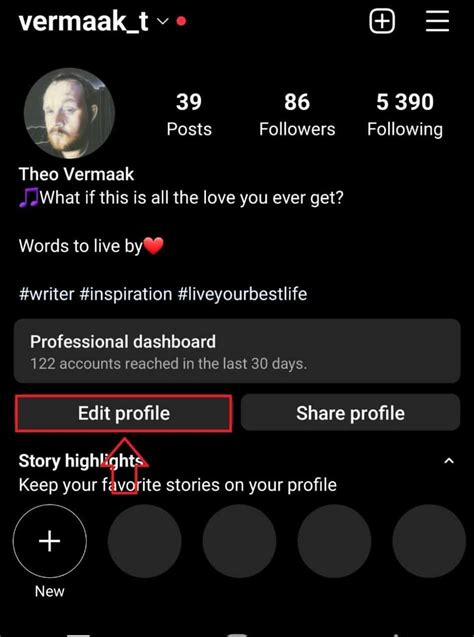Lubbil - All About Gardening
What makes a pretty face?
¿Cuáles son las consecuencias del efecto invernadero? | Ingredientes que Suman
Zodiac and Astrology – Zodiac Sun Sign Compatibility for Marriage – Indian Weddings
The 9 Best Indoor and Outdoor Summer Activities for Kids
Top Requested Songs - Wedding and Mobile DJ Song Request Lists | Powered by DJ Event Planner
Manga Market Size, Share & Trends Analysis Report, 2030
Concentration Frustrates D&D’s Rangers More than Paladins and Hexblades, but Unearthed Arcana Helps
These 5 Colors Make Burgundy Look So Luxe
Babies’ cuteness is key to their survival. What happens when they’re not that cute?
Mercedes - Fire Emblem: Three Houses Guide - IGN
Happy Rose Day 2024: Love is in the air, but so are skyrocketing rose prices! Here’s a price check for flower shoppers
6 Elements of Design for Striking Photographs | Envato Tuts+
How to Keep Salad Fresh | Modern Milkman
Re: Is f2.8 Fast Enough For Low Light?: Beginners Questions Forum: Digital Photography Review
Plantera
10 Tips To Keep Roses Looking Great | Heinen's Grocery Store
Response header - MDN Web Docs Glossary: Definitions of Web-related terms | MDN
John Shaw
Summer Activities for Kids in 2018 | Kid Power
FYI: These Spring Colors Make Maroon Look Insanely Good
How Long Does It Take To Plan A Wedding | Anticipation Events
WORLD ANIME DAY: Anime and how it shaped Filipino youth, culture
How to impress your boyfriend - Love and Relationships
These are America's luckiest-ever treasure hunters
Why Screenwriters Should Focus on Getting an Assignment Over Selling a Script - ScreenCraft
Citations Plus courte
Project-Based Learning: Five Key Features To Motivating Students
9 Fermented Foods and Their Benefits
Ear infection (middle ear)-Ear infection (middle ear) - Diagnosis & treatment - Mayo Clinic
Latest World & National News & Headlines
What is a STEMI Heart Attack?
Simple Ways to Keep Birds Off Your Porch: 9 Steps (with Pictures)
What is PBL?
The Ideal Length for a Mother of the Bride Gown: Floor-Length or Tea-L
– The Dress Outlet
Why White Balance is very important in Photography - MARAT STEPANOFF PHOTOGRAPHY
Report Writing : Stages Of Report Writing
Color Control | Definitions, Benefits, And How-To's
Anime Popularity by Country 2024
87 Crafts You Can Make and Sell as a Stay at Home Mom - Twins Mommy
MapMyRide vs Strava: A Detailed Comparison - Sportive Cyclist
What Not to Wear to a Wedding: 25 Items to Avoid
Self-help tips to fight tiredness
Is Dark Mode Better For Your Eyes?
Global Home Textile Market Size To Worth USD 216.3 Billion By 2033 | CAGR of 5.9%
How To Get Rid of Green Lacewing Flies | DIY Green Lacewing Fly Control Products
Image URL – a comprehensive beginner’s guide
Color: A Better Outdoor Bird and Bug Repellent | Five Star Painting
'COLORIZING' FILM CLASSICS: A BOON OR A BANE? (Published 1986)
Popular Posts
Reinstalling and patching your Quicken Subscription version after your membership has expired (Quicken for Mac)
Quicken Subscription Membership FAQs
Reinstalling and patching your Quicken Subscription version after your membership has expired
Quicken Review (2023): Features, Pricing & More
How Do I Manage My Quicken Subscription?
Quicken for Windows Release Notes
Quicken: Your Comprehensive Guide to Effortless Financial Management
404-page
What is the Quicken Cloud?
Plans & Pricing | Quicken
Quickbooks vs. Quicken: What's the Difference?
12 Best Quicken Alternatives for 2023 (#1 is Free) – RobBerger.com
Quicken on the Web Frequently Asked Questions
Which Quicken Is Best for You?
Is Quicken Going To Be Discontinued
Unable To Open Quicken for Windows After Updating To The Latest Patch
Quicken Deluxe Review
- Downloading transactions
Size or Capacity Limitations of a Quicken Data File
How to Back up or Restore Your Quicken Data
Running two versions on one PC
Where to find your subscription membership expiration date
How do I move/transfer my Quicken data file from one computer to another?
Quicken Vs. QuickBooks: Which Is Best For Your Business?
Mint VS Quicken Comparison

Your Name Without Space Between Letters And Words : How To Add Spaces In Instagram Captions And Bios Shane Barker - Or, you can change the vertical space between paragraphs in your document by setting the spacing before or spacing after paragraphs.
Currently Supported Quicken Products (Discontinuation Policy)
Quicken Review 2024: Better Features Worth The Cost?
Quicken Performance Troubleshooting
What's the Difference Between Simplifi and Quicken?
Why do I see a charge from Quicken for $1.00?
Quicken Review 2023: Features & Pricing, Pros & Cons
How To Delete an Account
Quicken for Windows: Creating a Year-end Copy At the End of the Calendar Year
Mint vs. Quicken
Mint Budgeting App Review 2023
Quicken 2018 - Now With Subscription Fees! | Bruceb Consulting
Can I save each calendar year as a separate file?
Quicken vs. Mint | Which Is Better at Managing Your Money in 2023?
Quicken Online vs Desktop: Is Quicken Desktop or Online Best?
Can I delete all of old backup files and just keep the current one
Elevate Your Financial Management with Mint: A Comprehensive Guide
The best free budgeting app for tracking your money
The 3 Best Alternatives to Quicken Software
I'm Missing Some Transactions or New Transactions Did Not Download From My Bank (Quicken for Windows)
De-activate registration prompt | Quicken 2012 - Tips
Money in Excel vs Quicken - Which Is the Best for Finances?
What Is Spacing and Kerning and Why They Are Crucial To Typography | HipFonts